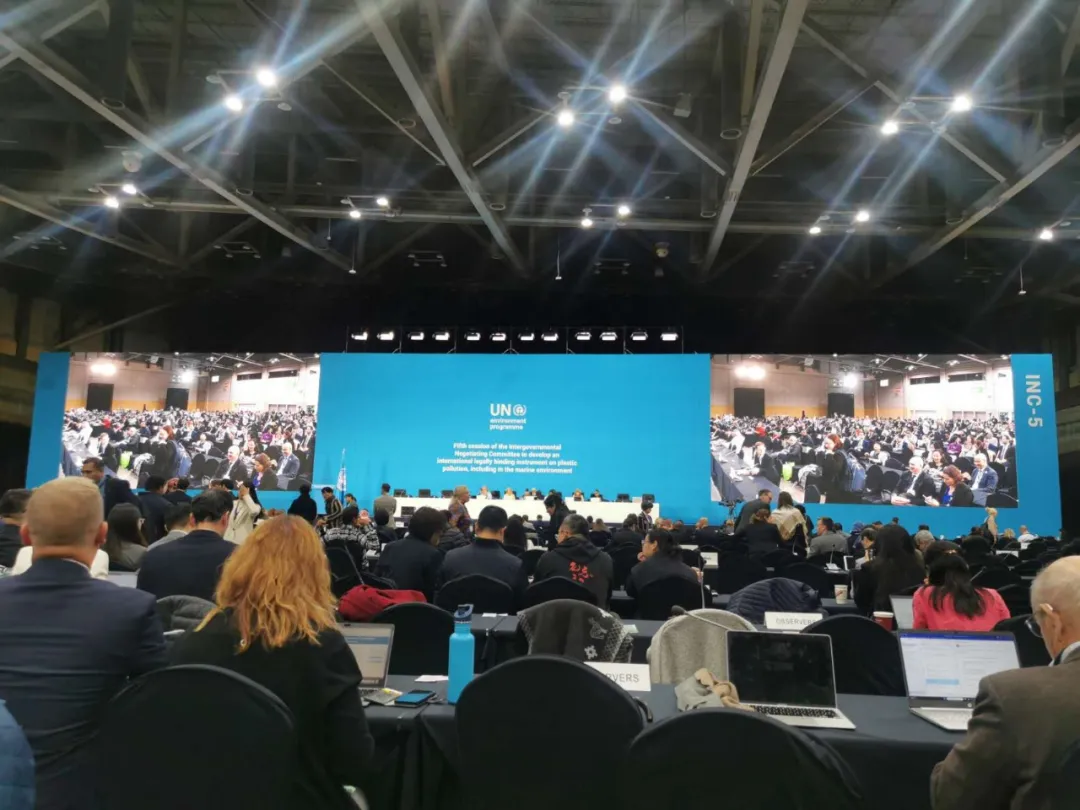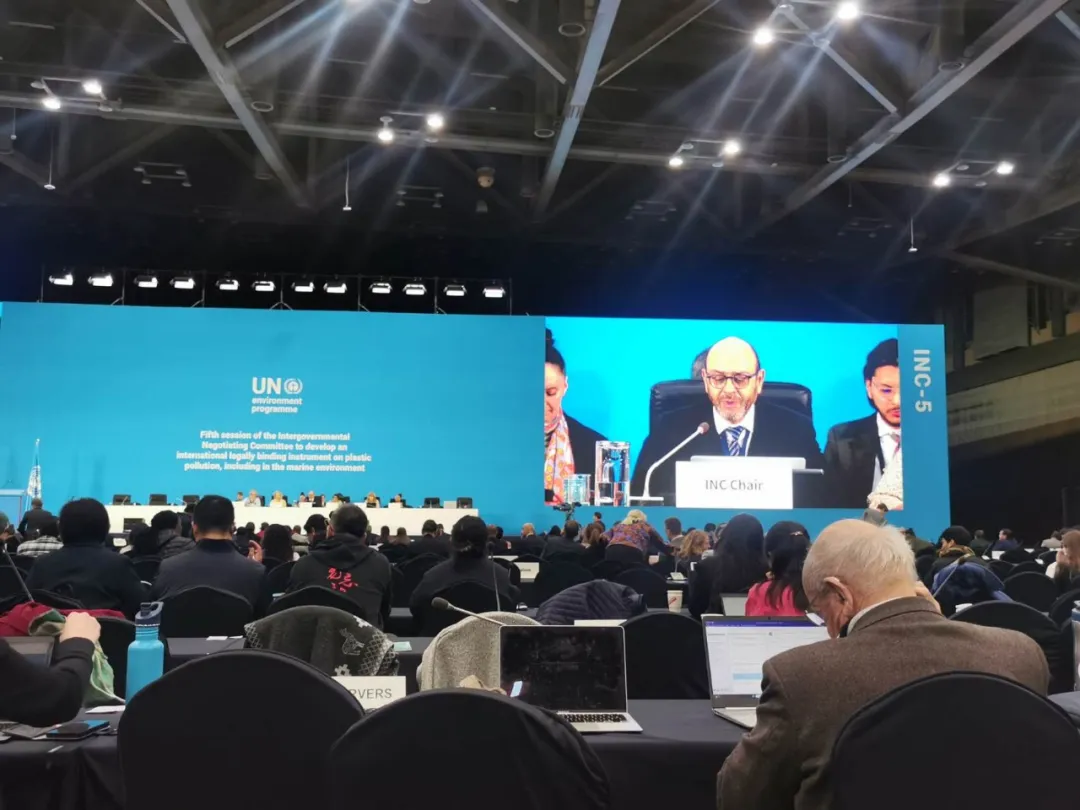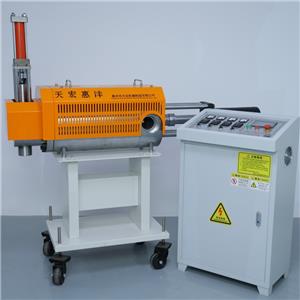INC-5 Mid term Quick Report: Negotiation Progress Slowly, Need to Accelerate Negotiation Speed
On November 27, the Global Plastics Convention Negotiation Busan Conference INC-5 held a plenary meeting, and representatives of all parties reported the latest progress of the negotiations.

At 5:30 p.m. local time in Busan on November 27, INC-5 held a general meeting.
1. Overall progress is slow
According to the "AdsaleCPRJ.com" learned at the scene, as of 5.30 PM on November 27 local time in Busan, the overall negotiation progress is slow, in addition to the second contact group has submitted the text of waste plastics management to the INC-5 website for consideration by the committee, other groups have not yet submitted any text negotiated after discussion. INC Chairman Luis Vayas Valdivieso urged the contact groups to speed up negotiations with a view to reaching consensus on an international instrument by this Saturday, December 1.
"Yashi Rubber and Plastics Network" participated in a number of side meetings hosted by ngos in different countries, and they were also members of the delegation or observers participating in the negotiations, so that we have more understanding and inspiration on issues related to reducing plastic production, extended producer responsibility system, and reuse.

INC Chairman Luis Vayas Valdivieso presided over the general meeting.
2. Reduce plastic production
Such as the controversial "Should plastic production be reduced" in the negotiation of this instrument, the European Union and the High Ambition Coalition (consisting of 67 countries) are currently calling for the reduction of plastic production and stressing the need to address this issue at the polymer production stage. Call for banning and phasing out problematic single-use plastic products.
However, representatives from the World Resources Institute Indonesia (WRI Indonesia) suggested that the reduction in production may lead to fewer jobs engaged in plastic production, and as for the reduction of single-use plastic products, will this increase the additional expenditure of low-income people to use alternatives?
In this way, reducing plastic production does not seem to be a simple production issue, or an economic or social issue, which needs to weigh the fairness of relevant stakeholders.
3. Reuse
During the INC-5 side meeting, the company also noted that "Reuse and Refill" have become important measures to reduce the use of single-use plastic products supported by many industry organizations.
Greenpeace has launched self-filling systems in more than 2,000 retail stores in nine cities in the Philippines, mainly for the filling of daily chemical FMCG products, to encourage local residents to reduce the use of disposable small packaging.
Representatives of Zero Waste in Indonesia mentioned that reusing packaging can compensate for the economic losses caused by reducing single-use plastic packaging. For example, in Indonesia, it is estimated that by 2030, the reuse of packaging will bring a net benefit of US $94.2 million, equivalent to US $253 for every tonne of plastic packaging waste reduced.
However, although reuse is good, it also faces many challenges in practical applications, such as the Philippines' self-filling system requires a large amount of capital investment, the logistics system needs to be localized design, and the overall cost is still higher than small packaging.
On the topic of reuse, relevant industry organizations hope that the Global Plastics Convention negotiated in Busan will promote the fair transition of plastic packaging to reuse and replenishment and set global goals for reuse systems.
In fact, as early as 2023, the latest report released by the United Nations Environment Programme, Cutting the Root Causes: How the World can End plastic pollution and Create a Circular Economy, mentioned that promoting reuse, including refills of water bottles, bulk dispensers, etc., could reduce plastic pollution by 30% by 2040.
The UNEP report provides guidance for the development of the plastics industry. If reuse is included in the international instrument under negotiation, it will be transformed into a legally binding measure. This will not only promote the widespread implementation of reuse, but also help to unlock its potential commercial value.
4. Extended producer responsibility system
Extended Producer responsibility (EPR) is also a topic of great concern to all parties. The business coalition, represented by Amco, Apra, Walmart, PepsiCo, Unilever, Nestle and others, supports the instrument's EPR policy, which requires companies that "introduce packaging and other short-life products" to fund the collection and disposal of products after use, arguing that the EPR scheme in the final instrument will help improve the efficiency of the global recycling system.
The representative of Nestle emphasized that EPR cannot exist independently and must exist in coordination with waste management policies at the government level, and the design of EPR mechanism is required to avoid opportunism, otherwise it will be unfair to those enterprises that have invested heavily in EPR.
At a side meeting hosted by the Green recycled Plastics Supply Chain Joint Working Group (GRPG) and multi-party organizations, the Chinese representative mentioned that the instrument should be based on the actual situation of production, consumption and disposal of producers in terms of extended responsibility system, avoiding a single responsible subject and achieving full chain management.
This means that while the EPR system has advantages in promoting the transformation of the circular economy, improving the efficiency of recycling systems and enhancing the transparency of materials and financial flows, it needs to have global compliance and coordination to ensure fair and equitable implementation.
5. Sum up
Despite the opinions of all parties, everyone has the same goal, hoping to reach an agreement in the negotiations of the last global plastics Convention in Busan, forming an international instrument to be submitted to the States parties for signature. "Ya-style rubber and plastic network" will also pay close attention to the progress of negotiations, to bring readers the latest on-site first-hand information.
Extra note
On the first day of INC-5 negotiations on 25 November, the Chairperson of the INC divided the delegation into four contact groups, each of which discussed a different theme and produced a text to be submitted to the Committee for consideration.
At the scene, the chairman of INC held a focused discussion by representatives with different positions and different agendas, and spent several hours on the first day discussing whether the agenda was reasonable, and when a representative said, "We should not spend time discussing how to negotiate, but should directly enter the negotiations," the whole audience applauded. But perhaps that is what the spirit of the UN conference is all about, respecting the views of representatives and making every country's voice heard.
Source: AdsaleCPRJ




